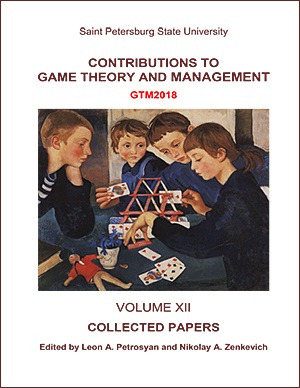Effects of Board Social Capital on Corporate Performance: Evidence from Russia
Abstract
Increasingly, researchers, studying board of directors’ characteristics, are coming to understanding that connections and relationships that directors establish with internal and external stakeholders have a certain value for the company. Board’s connections and relationships are considered in terms of concept of social capital of the board of directors. This study is focused on such an element of board social capital, as multiple directorship positions. Based on the existing studies in this field, research hypothesis were formulated and empirical study was conducted in order to set the relationship between multiple directorship positions and performance of the companies.
Keywords:
board of directors, social capital of board of directors, multiple directorship positions, performance
Downloads
References
Downloads
Published
How to Cite
Issue
Section
License
Articles of "Contributions to Game Theory and Management" are open access distributed under the terms of the License Agreement with Saint Petersburg State University, which permits to the authors unrestricted distribution and self-archiving free of charge.




